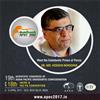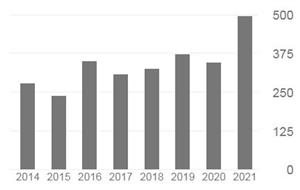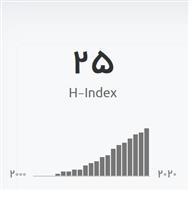Effect of Acid Etching Procedures on the Compressive Strength of 4 Calcium Silicate–based Endodontic Cements
The purpose of this study was to evaluate the effect of acid etching on the compressive strength of 4 calcium silicate–based cements. Methods: One gram of each corresponding powder of ProRoot MTA (Dentsply Tulsa Dental, Johnson City, TN), MTA Angelus (Angelus, Londrina, PR, Brazil), and CEM cement (BioniqueDent, Tehran, Iran) and a 0.33-g aliquot of liquid were placed in a plastic mixing capsule that was then mechanically mixed for 30 seconds at 4500 rpm in an amalgamator. For the preparation of Biodentine (Septodont, Saint Maur-des-Fosses, France), the liquid provided was added to the powder within the plastic capsule supplied by the manufacturer and then mechanically mixed for 30 seconds at 4500 rpm using the amalgamator. The resulting slurries were then placed incrementally into 40 cylindrical molds to give a total of 160 specimens that were incubated at 37C for a week. Twenty specimens of each material were then subjected to the acid etch procedure. The compressive strength of the samples was then calculated in megapascals using a universal testing machine. The results were then subjected to 2-way analysis of variance analysis of variance followed by the Tukey post hoc test.
Results: The application of acid etch significantly reduced (P < .0001) the compressive strength of Angelus MTA and CEM cement; however, it did not reduce the compressive strength of ProRoot MTA or Biodentine. Regardless of the acid etch application, Biodentine showed significantly higher compressive strength values than the other materials (P < .0001), whereas CEM cement had the lowest compressive strength values. There was no significant differenc between CEM cement and MTA Angelus. The compressive strength of ProRoot MTA was significantly lower (P < .0001) than Biodentine but significantly higher (P <.0001) than MTA Angelus and CEM cement in both the test and control groups. Conclusions: When the application of acid etchants is required, Biodentine and ProRoot MTA seem to be better options than MTA Angelus or CEM cement. (J Endod 2013;39:1646–1648)














